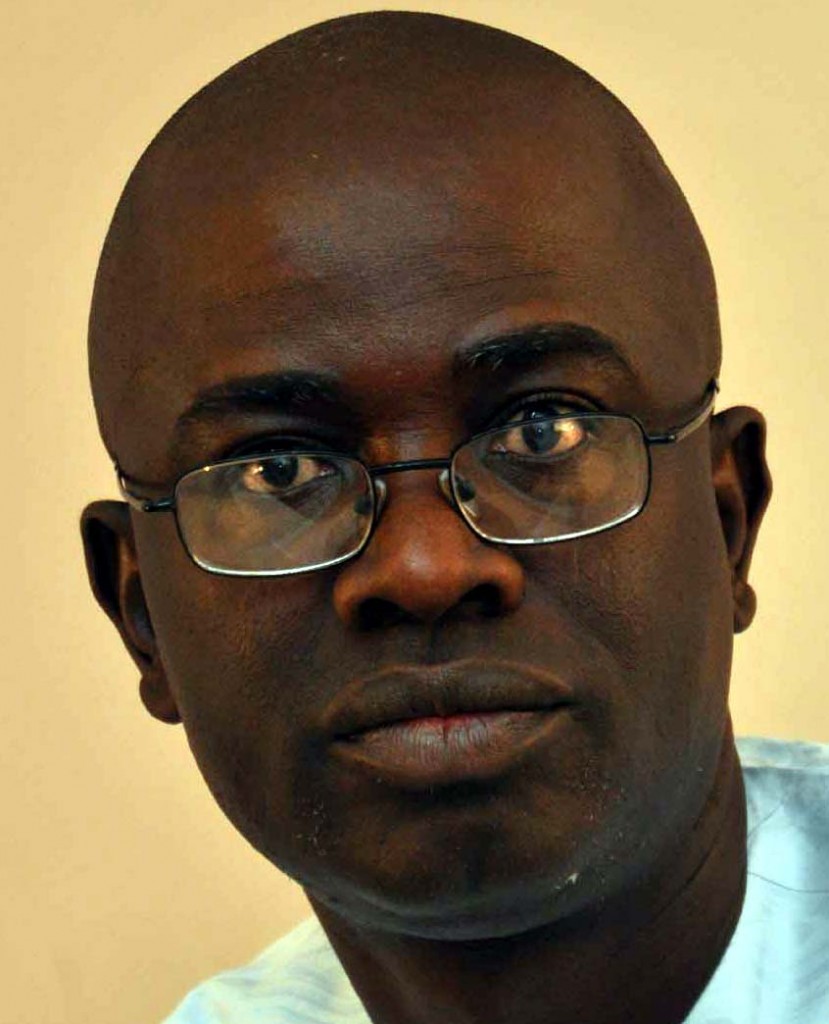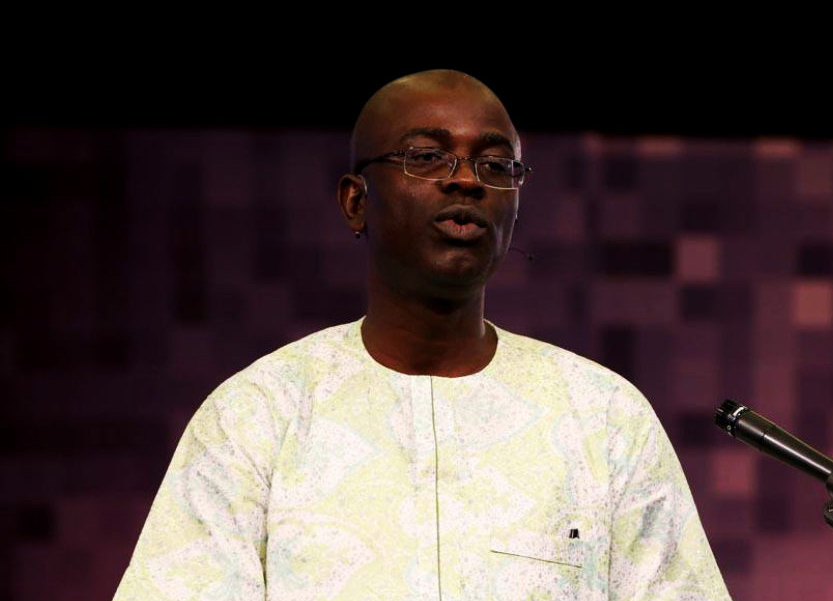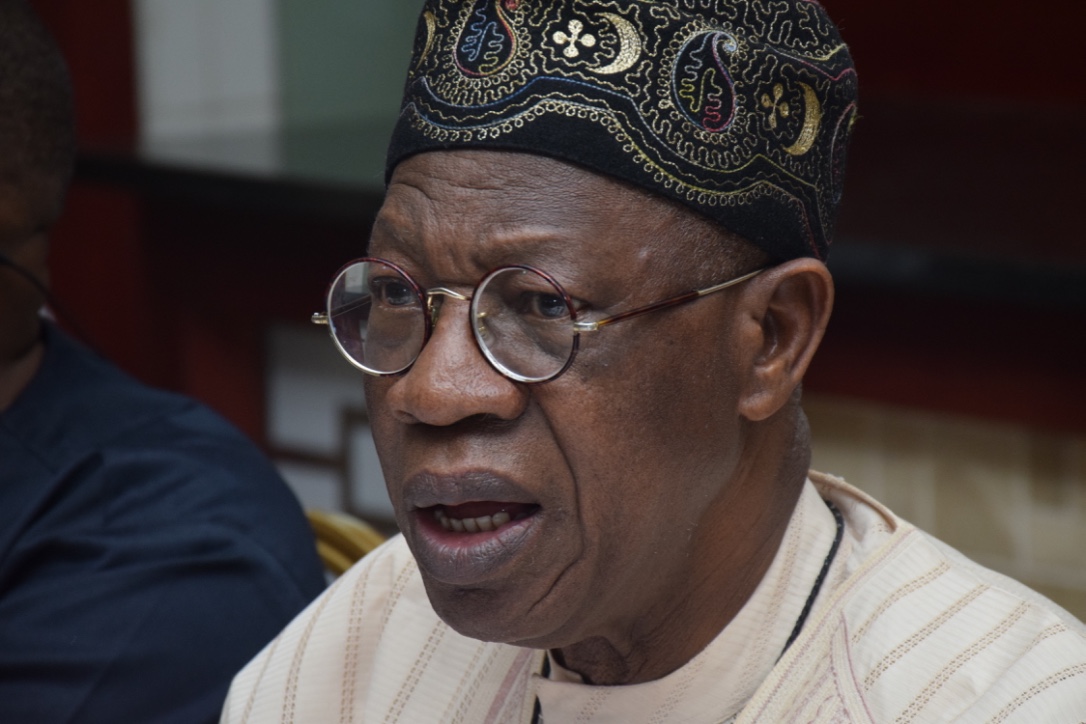Let me begin my presentation tonight with a short WhatsApp story which I find very instructive. I am recounting it with slight editing, of course. Here it goes:
Usually, my mother would leave some pieces of meat for the person packing her plates after every meal. And that chore I performed diligently. But my motivation to pack her plates were those leftovers. On a particular day, I noticed that the plates were empty so I just walked pass since there was nothing to ‘encourage’ me to pack them to the kitchen. Or at least so I thought. Apparently moved by a sense of duty, one of my brothers went to the table and packed the plates. My mother thanked him and while he engaged both hands in carrying the plates, she asked him to open his mouth. When he did, my mother put a very big chunk of meat in his mouth! At that moment, it occurred to me that I was only checking the plates; I didn’t watch out for the hand. The plates were empty, but my mother’s hand was full! That lesson has never left me!”
I am sure many of us would recollect moments like that in our lives but let me conclude the story with the words of the writer: “The reward for packing some plates of responsibilities and duties may not be visible on the plates but wrapped within the faithful fingers of devotion, dedication and selfless service to humanity. Many people walk pass their fulfilment by looking the other way from obligations simply because the plates seem empty of reward. If you miss the blessings of being responsible to your siblings, clients, partners, friends, colleagues, etc. the best that the anointing oil will do is to fry your head for dinner in the canteen of frustration. So, be eager to pack the plates you find on the table of responsibility: at home, in the office, within the associations you belong, everywhere…”
We are gathered here tonight to celebrate with someone who evidently packed the plates of responsibility at every epoch in her life. Exactly 40 years ago, Hon Justice Cecilia Mojisola Olatoregun bagged her L.L.B Degree from the then University of Ife and did her National Youth Service Corps (NYSC) scheme immediately after. Her working career started in 1981, as a state counsel in the Oyo State Ministry of Justice, before going into private practice.
Advertisement
In 1986, Mrs Olatoregun joined the Oyo State Judiciary as a Senior Magistrate ll where she served for a period of five years. I am not here to read her CV but so remarkable has been her career progression that from the rank of the Chief Registrar of the Federal High Court and the Admiralty Marshal of Nigeria, she was elevated to the Federal High Court Bench in 2000. And in the course of her 19 years’ sojourn at the court, Justice Olatoregun has delivered several landmark judgements. The two books in her honour attest to that. But the real message is this: If at any point in her career Justice Olatoregun had adopted the attitude of waiting for some leftovers in the plates before performing her duties, I am almost certain that we will not be here tonight. So, effectively, we are gathered here to celebrate with someone who parked the plates.
I don’t know what qualifies me to be here but I am aware that dinner speeches are not supposed to be long. As I told the celebrant when she first contacted me many months ago, this is a ‘come and eat’ affair and we must keep it strictly so. However, this is an opportunity to share some concerns with the men and women who hold the power of life and death over ordinary citizens like me. And it is not in my nature to waste such opportunities.
On 10th December 2015, the Nigeria Bar Association (NBA), Lagos State branch, held its annual dinner at Muson Centre and I was the guest speaker. The theme for the dinner was “Undressing Themis” which, as I explained, could be taken as either the basis upon which justice is founded or an attempt to reflect on the several ways lawyers put Themis to shame by their professional conducts. That night, I interrogated a question British lawyer and Queen’s Counsel, Mr. David Whitehouse, said he was once asked. It had to do with whether he would defend someone he considered guilty of the offence to which the person was charged. I deliberately chose the topic because I knew that among the lawyers I would be addressing that night, some must have, at one point or another, defended people they knew were guilty of the offence for which they were charged.
Advertisement
I prefaced my intervention with the story of a junior partner in a big law firm who was sent to court in a case involving a friend of his boss accused of misappropriating public funds. After days of trial, the case was won with the man discharged and acquitted. Excited about his success, the young lawyer sent a terse text message to his boss from the courtroom: “Justice has prevailed.” The senior partner, who knew the real facts of the case, misinterpreted the text so he replied: “Appeal immediately.”
Now to come back to the question posed to Whitehouse, this was his reply: “There is a huge difference between knowing someone is guilty and suspecting or believing they’re guilty. The first case I tried as a recorder with a jury, I was certain that the defendant was guilty at the end of his evidence. Then he called a completely independent witness who proved beyond any question that he was totally innocent. I was wrong and it taught me a very important lesson, which is that it’s not for me to make up my mind. So I try to keep an open mind at all times.”
If Whitehouse had ended his defence at that point, there would be no issue. It was what he said next that I find rather interesting: “I am not going to prevent my clients from having a fair trial because I personally suspect, as I sometimes do, that they committed the crime. The real thing is: can the prosecution prove it so a jury is sure they committed the crime?”
So, for the lawyer, the issue is not whether a client committed the crime for which they were charged but rather whether the prosecution can prove the case. This then brings me to the converse and I am delighted that there are several eminent jurists here tonight. Does it mean that Judges also acquit someone they suspect may have committed the offence? I am sure many would have done that given the preeminent position of English jurist, William Blackstone that it is “better that ten guilty persons escape, than that one innocent suffer.” This then brings me to the second question: Do Judges also convict defendants they have a hunch did not commit the offence but in which the case against them was proved beyond reasonable doubts?
These, I believe, are dilemmas that every Judge must contend with at some points in their career. That judges or members of the Jury, where it is not trial by bench, can never be certain is perhaps why in Scotland there are three verdicts available in criminal trials. The first is Guilty; the second, Not Guilty, and the third, Not Proven. While ‘not proven’ and ‘not guilty’ are both acquittals, there is a stigma attached to the latter which inherently says that although we are letting you go, we are not exactly sure of your innocence.
Advertisement
I have gone to this length to show the dilemma Judges face, not only in Nigeria but across the world since they are human. In Nigeria, there are several other challenges that our men and women on the bench confront almost on a daily basis. So, I salute all our Judges who are seated here tonight. However, there is an issue that worries me and I want to seize this opportunity to highlight it: The attachment of stringent bail conditions that are most often designed to keep applicants in jail. That these conditions apply mostly to those being prosecuted by the government raises questions that touch on the integrity of the bench in Nigeria.
In August this year, the bail application of a former Independent National Electoral Commission (INEC) National Chairman, Professor Maurice Iwu, was set at N1 billion with two sureties in like sum. One of the sureties, according to Justice Chuka Austine Obiozor of the Federal High Court in Lagos, must own a landed property in Lagos while the other must be a professor or a civil servant not below Grade Level 16. Both sureties were directed to furnish the court with the statement of their bank accounts, showing a minimum balance of N1 billion.
With that cumulative sum of almost N3 billion (in cash And value of property) for Iwu to regain ‘temporary freedom’ pending trial, it came as no surprise that the former INEC Chairman, standing trial on a four-count charge bordering on money laundering to the tune of N1.2 billion, spent more than a week in Ikoyi prison before the bail conditions were perfected. And it is only because of his status in the society that he could meet such conditions. Across the country today, there are hundreds of people who have been granted bail by court yet languishing in prisons because they cannot meet the attached conditions. As I speak, the publisher of Sahara Reporters, Mr Omoyele Sowore remains in incarceration, several weeks after he was granted bail by Justice Ijeoma Ojukwu and despite the variation of the terms by another Judge. The challenge is that the conditions attached to both bails are so stringent that many believe they were contrived to keep Sowore in jail.
The issue of attaching bail conditions that are difficult to meet, especially for offences that are not capital, should indeed be of concerns to critical stakeholders in the justice sector. But let me also state clearly that because bail is a discretionary matter, there are contentions about it in several countries. As one writer has put it, bail is based on two conflicting demands. One, the requirements of the society for being shielded from exposure to whatever risks posed by the accused person. Two, the fundamental canon of criminal jurisprudence founded on the notion that an accused is innocent until proven guilty. The idea of Bail is to blend these two conflicting claims of public interest and individual freedom. But there is a bigger issue. While pre-trial detention has always been with us in Nigeria, with thousands of citizens wasting away their lives as awaiting trials inmates, some pervert incentives have been created by the manner courts now dish out bail conditions to criminal suspects.
Advertisement
Early this year in Abuja, someone I know was granted bail by a court but with the usual stringent conditions. It was in the process of trying to meet those conditions that I learnt of a thriving industry within the federal capital territory. There are ‘Bail consultants’ in Maitama and Asokoro districts of Abuja who rake in hundreds of millions of Naira every year by acting as bail bond agents. They ‘lease’ out the title deeds of their property to perfect bail for defendants at scandalous fees. Since their documents are submitted in court all the time, that means these people are well known, or at least they must be.
Demanding between ten to a hundred million Naira just to stand surety for accused persons is for me very ridiculous but that, I learnt, is now the growing price in Abuja. And with that, several families now contribute to these bail contractors, almost in the same manner they contribute to pay ransom to kidnappers. I therefore hope that our courts are not setting these stringent bail conditions to keep some fat cats in business. Besides, commercializing justice through a court procedure by producing professional sureties, who must evidently be known to these courts, cannot be right. Yet, I have learnt in recent days that this practice is not restricted to Abuja; it is all over the country. I understand also that there is also an industry around senior civil servants who serve as sureties in court and they collect huge sums of money to provide such ‘professional’ services.
Advertisement
Before I conclude on the role of Judges in this matter, it is important to highlight other associated problems. After the application for bail has been granted in court, processing the release of the defendant/accused person is another challenge, leading to a situation in which criminal suspects are often punished for offences for which they may eventually be discharged and acquitted.
While we must put an end to these sordid practices which impede criminal justice administration in Nigeria, let me now speak briefly on the role of Judges before I take my seat. Ordinarily, bail is a pre-trial requirement in which a defendant is compelled to enter into a guarantee that a certain amount of money would be paid or property forfeited should they flee from trial. What is therefore contemplated by bail is to “procure the release of a person from legal custody, by undertaking that he/she shall appear at the time and place designated and submit him/herself to the jurisdiction and judgement of the court,” according to the free online legal dictionary.
Advertisement
While pre-trial detention may be important for law enforcement arms in the conduct of their investigations, release on bail is critical to the rule of law because once denied the accused, it would mean that their guilt has been affirmed even without court trial. Although Judges have discretionary powers when it comes to bail, the requirements of the law are that granting bail to an accused or remanding them in custody should be based on the risk of such a person absconding, offending, or obstructing justice. In Nigeria today, the critical issue is how this discretionary power is being applied; which is why I believe we need a reform in that direction.
I stated from the outset that in interrogating the issue of Bail in our country, I am restricting myself to the role of Judges and the courts. That is deliberate. Bail, we all know, is the biggest industry for the police. While the law states that it is free, once you are arrested in Nigeria, even if for something as ridiculous as singing in your house, and you are dragged to a police station, you must ‘drop something’ to regain your freedom. That sadly is the unwritten code with the police in Nigeria and these seems to be nothing anybody can do about it. But of concerns here are the conditions for bail being set by our courts, especially as they relate to cash or property bonds.
To the extent that Judges are supposed to be neutral arbiters in the settlement of disputes, regardless of the parties involved, I do not think it is right to be using bail applications to tip the scales of justice. Except in exceptional cases, the courts should not be giving bail conditions that they know cannot be met. Since the essence of demanding a surety is to ensure that the defendant returns to court for the remainder of the criminal justice process, I believe that the eminent jurists seated here tonight should reflect on what bail has become in our country today: An indeterminate jail sentence being given to an accused person before being found guilty of any crime!
Advertisement
As I congratulate Justice Olatoregun once again on her retirement, let me add that I am also aware of the hostile environment under which Judges operate in Nigeria so I must salute your courage and doggedness. In the run up to the last general election, for instance, our courts were able to say very loudly to the ruling party at the centre that it is only when the rules and regulations governing elections are binding on political parties and other critical stakeholders that Nigerians can begin to repose confidence in the system. So, our Judges deserve commendation and I commend them. If I therefore sounded harsh in my presentation, it is not out of disrespect or that I do not appreciate the critical role you are playing. It is just because to whom much is given, much is expected. With the enormous powers held by Judges, it is important that they understand that even they are not above parking the plates.
Thank you very much for listening and good evening.
Being a speech delivered by Adeniyi, Chairman, THISDAY editorial board, during the retirement dinner in honour of Cecilia Mojisola Olatoregun, judge of the Federal High Court, Lagos, on November 8, 2019.







